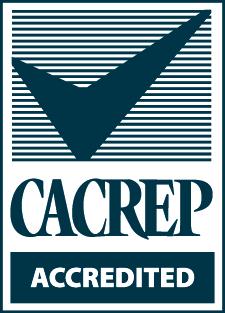
Hood College Counseling Programs Gain National Accreditation
Interview with Andrew Campbell, Ph.D., Program Director, Hood Counseling programs
- Academics
- Social Sciences & Humanities

Advanced clinical practice, scholarly inquiry and leadership in a rapidly growing field.
Tuition & Fees
Funding Opportunities
Download CES Brochure
The Doctor of Philosophy in Counselor Education and Supervision program at Hood College is dedicated to producing proficient and empowered counselors, supervisors and counselor educators, who will be equipped to lead in both clinical and academic settings. Grounded in the values of inclusivity, social justice and collaboration, graduates of the program are poised to shape the future of counseling and education, contributing to the well being of individuals and communities alike.
Our 60-credit program, based on CACREP guidelines, combines coursework in counseling, supervision, teaching, research and scholarship, and leadership and advocacy. You will also complete a series of hands-on internships, as you demonstrate your clinical counseling and clinical supervision skills working with clients and supervisees at the NeighborHood Counseling Training Center. Throughout the program, you will conceptualize, research, write and defend your dissertation, which will be based on your own unique personal and professional goals in collaboration with faculty advisement.
The counselor education and supervision Ph.D. program will pursue accreditation by the Council for Accreditation of Counseling and Related Educational Programs (CACREP).
Applications are currently open. Classes start fall 2024. Email gofurther@hood.edu to learn more.
Application Deadline: extended to January 12, 2024 (in-person interviews on March 1, 2024)
Along with their application, candidates must submit:
Resume/CV
Candidates should submit a resume or CV detailing their counseling-related training, work experiences and scholarship.
Transcripts
Transcripts must demonstrate completion of an advanced degree (M.A., M.S. or Ed.S.) from an entry-level graduate counseling program, with preference given to CACREP-accredited programs. Transcripts should reflect the academic program and credits earned. If transcripts do not reflect CACREP accreditation status, please include that in your career goals statement.
Applicants must have completed 60 credit hours of graduate counseling coursework necessary for licensure as a professional counselor or school counselor. If the advanced degree program involved only 48 credit hours, applicants need to complete 12 additional credit hours to meet licensure requirements. Candidates must submit official transcripts documenting the completion of both undergraduate and graduate degrees, including any supplementary courses to become an LGPC/LCPC.
Personal Statement
This essay should be no more than two pages in length, single-spaced. This essay provides you with an opportunity to supplement the other information available to the admission committee relative to your objectives in pursuing doctoral work. The statement should include:
Letters of Recommendation
Three letters of recommendation concerning the applicant's academic and professional abilities and potential are required. These letters should address the applicant's ability to meet graduate-level academic challenges and to work in the counseling professions. At least one individual should be well acquainted with the candidate's academic potential. At least one person should be a supervisor or trainer who can discuss in detail the applicant's counseling skills.
Our mission statement and program objectives are based on 2016 and 2024 CACREP standards.
Mission Statement
The mission of the Doctor of Philosophy in Counselor Education and Supervision is to align with Hood College to empower students to use hearts, minds and hands in clinical and academic settings, while extending the knowledge base and goals of the graduate programs in counseling. With a focus on teaching and clinical practice, the program aims to produce competent counselors and counselor educators who engage in research, teaching, supervision, leadership and advocacy that values an anti-racist stance. We advocate for a commitment to social justice and the elimination of oppression in our shared communities through a collaborative mindset.
Program Objectives
The NeighbordHood Counseling Training Center (NCTC) is run by our graduate-level counseling students during their field experience, supervised by our faculty members, clinical director and doctoral students. We aim to help people in Frederick and surrounding areas with the following:
For more information and to contact the clinic, click here.
This project is supported by the Health Resources and Services Administration (HRSA) of the U.S. Department of Health and Human Services (HHS) as part of an award totaling $1,298,013 with 0 percentage financed with non-governmental sources. The contents are those of the author(s) and do not necessarily represent the official views of, nor an endorsement, by HRSA, HHS or the U.S. Government. For more information, please visit HRSA.gov.
The Ph.D. program in counselor education and supervision requires a minimum of 60 graduate credit hours beyond an approved master’s degree.
This concentration consists of theory, research, professional application, dissertation and specialization based on electives, all of which extend the knowledge base of the counseling profession in a community of scholarly inquiry and engagement.
Theory (12 credits)
Research (15 credits)
Professional Application (12 credits)
Specialization (Choose 9 elective credits)
Comps and Dissertation (12 credits)
NOTE FOR DOCTORAL STUDENTS WHO ARE WORKING ON THEIR DISSERTATION.
Students are highly encouraged to develop interdisciplinary scholarship through their dissertations and other research expectations. Doctoral students work closely with faculty in designing, implementing and evaluating innovative educational and research projects in response to the needs of society.
Writing the dissertation requires a major commitment of time and effort on both the part of the doctoral student and the faculty adviser. There should be consultation between the student and the dissertation chair about what is expected to be accomplished and how much time is to be invested before the student registers.

Program Director

Director of Graduate Admissions

Interview with Andrew Campbell, Ph.D., Program Director, Hood Counseling programs

"Hood College has so many connections locally and there are so many opportunities for career advancement that will definitely help me further my career. The counseling program has a very hands-on approach, which is immensely helpful in learning techniques and different theories."

Hood’s Master’s in Science in Counseling, Clinical Mental Health Specialty, recently received a 2.2 million grant from the Health Resources and Services Administration (HRSA) of the U.S. Department of Health and Human Services (HHS). This grant will help fund Hood College’s Helping the Helper program designed to increase diversity in the field of clinical mental health counseling in the Frederick Area.